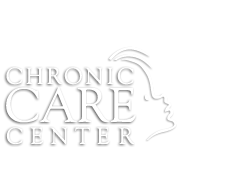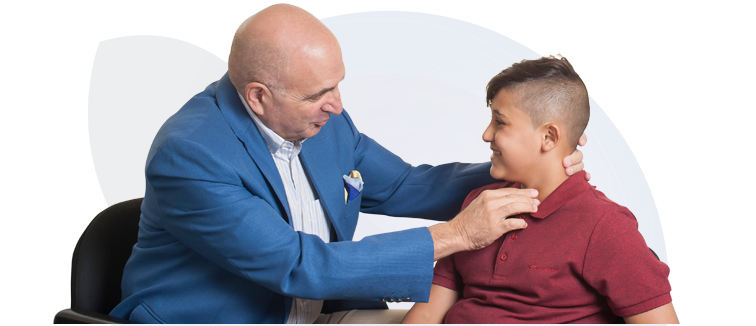Health efforts and community budgets dedicated to health problems are spent nowadays on prevention of diseases and their complications. Recently the UN General Assembly held a High Level Meeting on Non-communicable Diseases (NCDs) to put NCDs including Diabetes, on the global health agenda. They charted a course of action for its control and prevention.
- In Thalassemia, a hereditary disease, prevention strategy and community awareness campaigns have been developed to prevent newborns from being affected. The Center succeeded in November 1994, in collaboration with the MOH, to implement the premarital test. The Center launched, in December 1994, with the Ministry of Social Affairs a joint national prevention program and an action plan that is constantly updated and implemented in the different Lebanese regions.
- In type I Diabetes, an autoimmune disease, education has a major role in preventing and or delaying its complications.
- More efforts are being oriented towards prevention of all other types of Diabetes through the Center's contribution by developing a National Diabetes Prevention Strategy.
o Type 1 Diabetes education
Diabetes is a disease that affects the whole family, especially at the time of diagnosis. Providing education and support to the patient and family can make all the difference.
Diabetes education is tailored to age groups, intellectual and social level. It is delivered in different sessions and in different ways to meet every patient or parents needs.
It focuses on:
- Understanding Diabetes and its complications.
- How to manage it with different treatment protocols for tight control of the blood glucose (BG) level.
- Empowering the patients and their families to become autonomous in Diabetes management.
- Making changes in life style (healthy diet and physical activities...) to improve outcomes.
Children education
Education given to the child depends on his age and learning capacity.
Children need to learn:
How to test blood glucose by finger prick and read results through the glucometer (normal BG =80mg/dl-120mg/dl).
About insulin: How it works, when to take it and how to measure and mix it if needed.
- How, when and where to inject insulin: 3-4 times /day before meals, at specific sites of the body in a rotational way to prevent lipodystrophy. It is advisable to clean hands before filling the insulin and disinfect the injection site with alcohol rub.
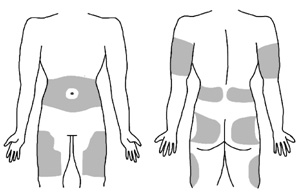
- How to store insulin: Insulin should be stored in a refrigerator (2-8°C) and transported in a special insulated container.
How to do urine test to detect Ketones. If positive refer to physician.
About the diet:
- Adopting a healthy and balanced diet.
- Learning about food groups and their effect on glycemia.
- Identifying sources of carbohydrates. They are found in bread, beans, milk, popcorn, potatoes, cookies, spaghetti, soft drinks, corn, dessert cakes... The most common forms are sugars, fibers, and starches.
- Determining insulin doses based on advanced meal carbohydrate counting.
- Coordinating timing of meals vs. insulin protocols.
- Managing snacks and insulin doses appropriately during physical activities to prevent glycemic fluctuations: for brief exercise <60min, take juice or fruits; for intensive exercise>60min, reduce insulin dose and take a small sandwich. Sugar or candies must be available with diabetics during exercise.

About sport:
- Sport, or exercise of some form, is an essential part of diabetes treatment.
- Participating in team sports, with a competitive objective, can be a great way for diabetics to stay healthy and enjoy themselves.
- Taking part in sport and taking exercise is a key way of managing diabetes and keeping the body healthy.
- Being involved in sport can help diabetes in the following ways:
- Better response to insulin and better control of blood sugar levels.
- Building muscle, burning calories and losing weight.
- Lowering of risk of complications.
- Lower tension and stress.
- Increased mental positivity and confidence.
About the glycated hemoglobin (HbA1c):
This test is the most useful measure in evaluating metabolic control and it reflects levels of glycemia over the preceding 6-12 weeks (normal level <6.5%).Diabetic patient should have 4 readings per year.
About acute complications of Diabetes: symptoms of hypoglycemia and hyperglycemia, how to prevent it and appropriate actions to take.
Hypoglycemia (BG<60mg/dl), due to inadequate food intake, excessive insulin or increased physical activity.
- Symptoms include: hunger, tremor dizziness, sweating, tachycardia...
- What to do: give 5-15 g sugar /20kg body weight (BW); in severe cases give glucagon injection subcutaneous or intramuscular (0.1-0.2/10kg BW).
Hyperglycemia: (BG>180mg/dl), due to untreated Diabetes, excessive food intake, insufficient medications, illness and stress.
- Symptoms include: increased urination, thirst, irritability, blurred vision and weakness.
- What to do: drink water, take adequate dose of insulin, test urine for ketones and call your doctor if needed.
Parent's education
Parents need to take active role in Diabetes management regardless of the age of the child. When patients are less than 5 years, parents should learn about the disease and its complications, insulin doses and adequate adjustment when needed. After the age of 8years, Diabetic patients are empowered to become independent in the management of their condition (inject insulin and perform glucose test). At this time the parents should supervise their child, agree on his management and avoid overprotection.
Parents need to learn:
How to test blood glucose and how to do urine test for adequate monitoring of glycemia.
About insulin:
- How it works, when to take it, how to measure and mix it if needed and how to store it.
- How, when and where to inject insulin: 3-4 times /day before meals, at specific sites of the body in a rotational way to prevent lipodystrophy.
- How to adjust insulin and snacks to prevent hypoglycemia during physical activities.
The importance of frequent daily BG testing, Glycated hemoglobin test and the medical follow up.
How to adopt a healthy and balanced diet for all members of the family.
Management of acute complications: hypoglycemia or hyperglycemia especially in severe cases.
How to accept the disease and cope with it, how to support their child during childhood and adolescence to help him/her live normally with this condition.
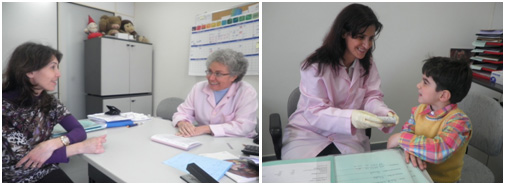
One to one basis.
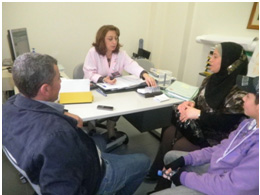
All the family can participate in the educational session.

Group educational sessions help patients meet, learn and correct wrong informations about Diabetes.

Nutritional sessions stress on the importance of healthy and balanced diet.
Community awareness
Aiming to help young diabetics live normally and later become productive members in the society, build their own families away from having a stigma of a chronic disease, the Chronic Care Center developed campaigns to increase awareness on Diabetes:
- In schools, educational conferences about Diabetes and its management are given to school nurses, teachers and students. It helps better integration and prevents discrimination.
- The Center receives continuously school and university students. During these visits, information about the disease is given to increase awareness in Diabetes and its risk factors.
- Professional sessions are given also to hospital nurses, dietitians and other caregivers during congresses and in specific workshops.
- Clinical training for students from nursing and nutrition schools are provided at the Center to improve skills in management of Diabetes.
